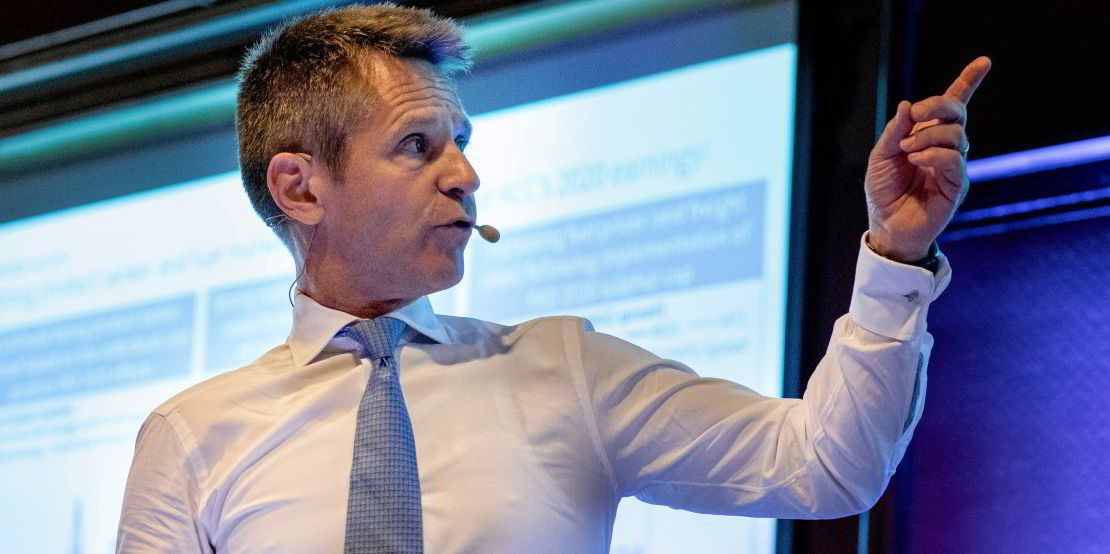Norway’s Klaveness Combination Carriers (KCC) expects lucrative contract rises for caustic soda trades after convincing sceptics of the value of its versatile vessels.
The Oslo-listed owner’s chief executive, Engebret Dahm, was asked on a conference call about the size of charter renewals for the Cabu caustic soda ships in stronger markets this year.
He said it is too early yet to say what increases can be secured, but added: “Last year when we negotiated the contracts, the spot market was below $10,000 per day and time charters for the next 12 months were around $12,000.
“Today the spot market is closer to $40,000 and time charters for MRs are closer to $25,000.”
KCC posted its best-ever quarterly earnings to 30 June as product tanker markets spiked.
Average fleet time charter equivalent earnings were $30,235 per day, the highest level since 2011.
And it expects the third quarter to be even better, with six new oil product clients added so far this year for the Cleanbu oil product and dry cargo vessels.
“Assuming the tanker market continues, I think we are going for a solid increase, but I can’t tell you how much,” Dahm said.
He was also asked if more new customers and trades will be added in the rest of 2022.
Momentum maintained
“I think we have got a very good momentum, with respect to increasing customers and expanding freight,” he responded.
“It took us some time to convince the market that our ships were as safe and much more efficient than standard vessels. I do believe that this will continue.”
The CEO also believes the owner has advanced well in Atlantic trades and “we do expect and hope that we can also advance further in our trades to Australia over the coming quarters”.
KCC has already taken into account the weakening dry market outlook for 2022 and is looking to add tanker cargo exposure.
Dahm admitted there is little possibility of increasing tanker legs for the Cabus.
But he added: “We have tended to try to adapt and increase the tanker exposure for the Cleanbus without compromising the trading efficiency of the fleet.”
The company has 77% of fixed-rate tanker business covered for the third quarter and 97% for bulkers.
New long-haul Cleanbu combination trades have been developed into the US East Coast, as well as increased clean product market share into Brazil and Argentina.
Five to six Cleanbus were employed to and from the US East Coast and South America in the period, and into the third quarter.






